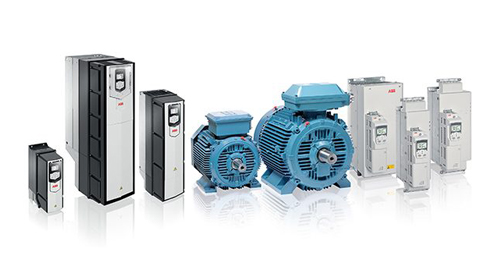New MEPS regulations have some significant implications for everyone in the supply chain.
In my earlier blog, I talked about what EU MEPS means for original equipment manufacturers (OEMs) and machine builders. Here I extend the discussion to cover considerations for everyone involved with the specification, influence or purchase of motors and variable speed drives.
The main observation regarding EU MEPS is for all those involved in the supply chain to determine exactly what their motor supplier can offer. Do you want a vendor who supplies the bare minimum, offering IE3 versions of the motors you have now, or do you want something more? Established motor manufacturers can often provide access to even more efficient technology; greater assistance in selecting the right motor for your specific application from a wide portfolio; and extensive services that help you keep the motors running for many years.
More importantly, with more motors being used on variable speed applications such as pumps and fans, can your vendor offer the latest variable speed drive technology? Having one company capable of designing the perfectly matched motor and drive combination can help control costs from initial capital expenditure right through the operating costs chain.
Many buyers understand that selecting a motor or a drive with a known high reliability from a trusted supplier is good insurance against unplanned downtime. The onus is on the manufacturer to define and then prove the reliability of their drive system.
At ABB we recently opened a new testing laboratory in which customers can prove that a chosen motor/drive combination will deliver the performance needed. Simulating the loading conditions in the actual application means we can precisely measure all the parameters needed to find the optimal drive system for your application.
Using the test results to optimize the motor/drive combination also prevents over-dimensioning. Thorough testing ensures that the motors and drives offered are highly reliable.
We believe that a good supplier is one that is always looking to the future and exploring ways to push the boundaries of product efficiency. Take the synchronous reluctance motor, or SynRM. This revolutionary design has no rotor windings, meaning it suffers virtually no power losses. This keeps its temperature much lower than in conventional rotors, making it much more efficient than induction motors. One variant even operates at IE4 efficiency levels.
Used with variable speed drives, SynRMs are capable of handling virtually any application. They can provide highest energy efficiency and reliability to water supply systems or great control performance for demanding applications within plastics and rubber.
And despite its advanced technology, it does not carry a premium price. In fact SynRMs are often the same price as induction motors of the same efficiency level.
Further regulation can only go one way, towards even higher efficiency. Vendors offering advanced designs such as the SynRM are not just conforming to the new MEPS levels, they’re ahead of the game and will help keep you there too.
Many major companies deal directly with manufacturers rather than distributors, and, although the responsibility is on manufacturers to place the correct motors on the market by the deadlines, it is not advisable to think that it’s ‘somebody else’s problem’.
The central message is that all parties need to meet with their suppliers and decide how the regulations will affect them and what purchasing strategy will be best for their organisation. The regulations are here and putting off these crucial decisions is not an option.
Please visit our web pages to find more information about new EU MEPS regulation.
CR. https://www.abb-conversations.com














